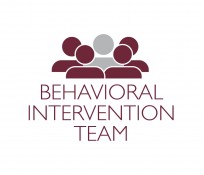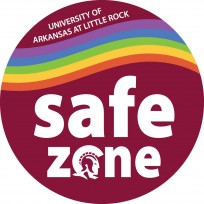Mission
In the interest of creating usable, inclusive and sustainable environments, the Mission of the UA Little Rock Disability Resource Center encompasses two primary functions:
- To consult and collaborate with faculty, students, other campus stakeholders, and outside entities regarding Universal Design and reframing disability.
- To facilitate access via accommodations, including those related to communication, the physical environment, print materials, and technology.
Summary Narrative
1) Enhance recruitment and retention efforts to increase enrollment
Through the DRC scholarships are awarded to three individuals by the Threm and Stacy Willis Memorial Scholarship.
The Threm scholarship is a donation provided by David and Joanna Threm. David worked in the Disability Resource Center over 20 years ago and is continuing the help he once provided as a student.
The Stacy Willis scholarship honors Stacy Willis, a dedicated student at UA Little Rock who graduated with honors, then moved to Florida State University where she obtained her Master’s Degree in Rehabilitation Counseling. UA Little Rock saw her potential and hired her to work in Student Support Services. Counseling, supporting and working with students with disabilities to achieve their educational goals was her highest calling. This scholarship honors her to follow through with that calling.
The Disability Resource Center incorporated follow up calls to students registered with the office in a proactive manner to address any issues and help ensure success and retention.
The Disability Resource Center provides interpreters, books in alternative formats and other accommodations to ensure access to learning.
Strengthen student-friendly operations and customer service
Disability Resource Center implemented a new database Accessible Information Management (AIM) database to better organize record keeping of students.
With AIM, the DRC can simplify the processes for students, staff and professors by improving integration with existing systems. For students, this update will make it easier to request accommodations, assistive technologies and other services.
Improve diversity and inclusion efforts to provide a safe and inclusive environment for students
The DRC presented information on registering for services to receive accommodations to students enrolled in the Clinton School of Public Service, Social Work Programs, Nursing school orientation, Speech Communication, and the Bowen School of Law.
Align financial and human resources to operate more effectively and efficiently
The DRC Implemented new student database that integrates with systems currently at UA Little Rock and, which is more efficient in disseminating Faculty Notification Letters, acquiring specific information that could help the office be more proactive and better organized with registered students.
Promote student development, engagement, and leadership
In response to students shifting from on campus classes to online classes due to the Covid 19 pandemic, the DRC hosted online video meetings with students over the summer to gain insight into the experiences of the change.
Students shared their experiences giving insight to the DRC that will help this office and students be better prepared should a shift to online learning occur again.
From these meetings the DRC will host more video forums with students registered with this office to discuss access and learning . In addition, the DRC will reach out to community stakeholders, such as Arkansas Rehabilitation Services to better address student needs.
Other
Presentations in the Community
The DRC presented to students, parents and teachers at North Pulaski High School, Arkansas Interagency Transitioning Partnership (AITP) Summer Connections in Little Rock. Members of AITP made up of Special Education teachers, area evaluators, and various disability service providers from across Arkansas.
Community Collaboration
On Campus
The DRC is represented in the Staff Senate, University Garden Alliance, Title IX, University Behavioral Intervention Team, CARE Team and PACT (Provost’s Academic COVID-19 Taskforce)
Off Campus
The DRC is represented in the Arkansas Chapter of the Association of Higher Education and Disabilities (Ark-AHEAD), Arkansas Registry of Interpreters for the Deaf ARID, and the Arkansas Interagency Transition Partnership.
At A Glance
The DRC serves approximately 600 students
The DRC provided approximately 425 books in alternative formats
Assessment 1
Type of assessment (learning outcome or operational)
Operational
Goal
Keep faculty more informed about DRC activities and services.
Activity or experience being assessed
Create “Helpful Hints” enewsletter for faculty. Send email to all faculty who have received faculty notification letters from DRC this semester to let them know the first edition is coming, and to encourage them to let us know what topics they’d like to see covered.
Assessment artifacts
Survey
Time period assessment was done
June 2020
Results
331 surveys sent with 11.3% return.
75% of respondents said the information was helpful
86% of respondents said they would like to continue to receive this information.
Notable comments from the survey:
- Faculty would like to learn more about best practices for online teaching and accessibility
- The DRC should highlight and share unique situations
- Provide lists of resources (I.E. How create online accommodated exams, caption videos
- To send alerts
Continuous improvement process
Based on the survey the DRC will continue to provide periodic information in the same format and will look at other means to disseminate information, such as Black board shell and or short videos.
WHEN: Fall 2020
Stateholder involvement / Communication plan
DRC Staff/ annual report
Assessment 2
Type of assessment (learning outcome or operational)
Operational
Goal
To see how the shift from on campus classes to online learning affected students registered with the DRC during the pandemic.
Activity or experience being assessed
During the pandemic students were forced to move from on-campus classes to online learning. We want to find out how this affected students and what the DRC could learn to be better prepared should another shift occur in the future.
Assessment artifacts
Focus group
Time period assessment was done
June 2020
Results
In speaking with the focus groups the DRC can better anticipate the needs of students and be proactive should on-campus classes be moved online by finding out where they sit with technology or providing resources where they can find help through campus or external resources, such at Arkansas Rehabilitation Services, World Service for the Blind.
The DRC will request information on external services individual students work with to be aware of other resources.
Continuous improvement process
Will prepare content for an email to send to all DRC students with instructions/information about the university going back to phase 2 (should the need occur). The email will instruct students working with DSB, ARS, and others to notify their caseworkers to ensure they have the resources they need for online learning. The DRC will prepare students for what to expect if we go back fully online.
WHEN: Fall 2020
Stateholder involvement / Communication plan
DRC staff; annual report
Assessment 3
Type of assessment (learning outcome or operational)
Learning outcome
Goal
Solicit input from students that could benefit the DRC and students during if the campus reverts to an earlier pandemic phase.
Activity or experience being assessed
Focus group
Assessment artifacts
Focus group notes
Time period assessment was done
March through May, 2020
Results
Many of the students within the focus group, even though they noted difficulties of moving on line, realized that in some ways had more access with video conferencing.
However, the various platforms used by professors for videos created difficulty for students trying to learn a new technology.
It was suggested that if University is to go on-line to use one platform for video conferences to help eliminate the added pressure of learning a new system.
It was suggested that group meetings via video chat could bring more students together in peer to peer groups.
Students who experienced the shift could potentially become mentors for new students. From there students felt that the DRC should host open video meetings, create group meetings with people experiencing similar barriers.
Finally it was suggested that students should work on their own contingency plans.
Continuous improvement process
The DRC will create group meetings for students registered with the DRC
The DRC will identify the most commonly use video platform used by students registered with the office to be used in video group meetings.
The DRC will encourage students to be prepared should the University have to move to online teaching.
WHEN: September 2020
Stateholder involvement / Communication plan
DRC information will be emailed to students to gather information.
Priorities for Next Year
- Customer Service
- Create easy to find resource list for Professors
- Create an online program for peer to peer mentoring.
- The Disability Resource Center will continue to implement features to the AIM database, which will improve services students, faculty and staff, while also providing data to identify areas of improvement.
- The DRC will be work with STaR and the University on the implementation of Blackboard ALLY, a tool that will help faculty identify and remediate issues with accessibility.

